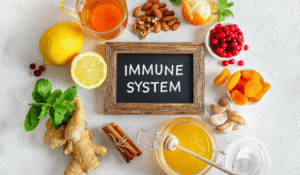Personal hygiene is one of the best strategies for improving health and well-being. In modern life, with the focus on work and responsibilities, healthy hygiene habits can easily be neglected. Maintaining good hygiene can prevent infections and diseases, boost self-confidence, and improve mental health. Understanding and practicing good hygiene protects us from pathogens and ensures good physical and mental health. This article introduces some of the most important personal hygiene habits that will help you live a cleaner, healthier, and happier life.
Understanding the Value of Personal Hygiene:
Good hygiene habits are essential for preventive health, not just for appearance. Good hygiene can reduce illness, improve social relationships, and boost self-confidence. Washing your hands, brushing your teeth twice a day, and keeping your surroundings clean are simple and effective ways to prevent bacteria and viruses. Hygiene demonstrates self-discipline and self-care, which influences how others perceive you, both in your personal and professional environments. Hygiene not only helps prevent disease but also promotes respect, health, and well-being in our daily lives.
Daily Hygiene, the Path to Health:
Personal hygiene begins with a regular sleep and rest routine. Regular bathing removes sweat, dirt, and bacteria, preventing body odor and infections. Clean, mild soap and water keep skin fresh and reduce inflammation. Oral hygiene is also crucial. Brushing and cleaning your gums and teeth can prevent tooth decay and bad breath. Clean clothes, manicures, and washing your hands before meals are also essential for good health. These daily habits can significantly reduce exposure to pathogens that can weaken our immune system.
Preventing Disease Through Hand Hygiene:
Washing your hands is one of the simplest and most effective strategies for preventing infection. Bacteria, viruses, and other pathogens accumulate on our hands through daily contact with various surfaces. Most pathogens that cause flu, colds, and food poisoning can be eliminated by washing your hands with soap and water for 20 seconds. When soap and water are unavailable, alcohol-based sanitizers are effective. Raising awareness about hand hygiene in schools, businesses, and public places can help protect the health of the community.
Oral Hygiene for a Confident Smile:
A clean mouth is essential, but often overlooked. Poor oral hygiene can lead to gum disease, tooth decay, and bad breath, which impact both physical and social well-being. Healthy teeth and gums can be maintained by visiting the dentist regularly, brushing twice daily with fluoride toothpaste, and flossing to remove food debris. Oral hygiene can boost self-confidence and reduce the risk of systemic diseases such as cardiovascular disease and diabetes. Just like any other part of the body, oral care is crucial.
Keep Your Hair and Scalp Clean:
Hair care is important for preserving clean skin, as dust, sweat, and pollutants attack our hair and scalp daily. Regular brushing improves blood circulation to the scalp and promotes the production of natural oils, while gentle washing removes residue. The ideal washing frequency is 2-3 times a week, depending on your hair type and environment. Good hair and scalp hygiene can prevent dandruff, infections, and lice. Good hair care boosts your self-confidence and is crucial for both personal and professional interactions.
Essential Skin and Body Care:
Healthy skin starts with cleanliness. Bathing daily with gentle products removes oil, bacteria, and pollutants that cause acne and irritation. Moisturize after bathing to prevent dryness. To prevent odors and infections, pay attention to your armpits, feet, and intimate area. Changing after sweating or exercising and wearing breathable clothing helps maintain healthy skin. Regular skincare can improve your appearance, strengthen your skin’s natural defenses, and ensure long-term health.
Health Awareness for Men and Women:
Due to cultural taboos, intimate hygiene is often overlooked, even though it is crucial for health. Using gentle products and breathable materials for vaginal cleansing can help women prevent infections and pain. Men should maintain their genital hygiene to prevent odor, discomfort, and bacterial growth. Daily washing and changing underwear, and avoiding contact with harsh chemicals, are crucial. Sharing information about personal hygiene can create a healthy, non-discriminatory workplace where both men and women can experience the power of self-care.
The Psychological Effects of Personal Hygiene:
Personal hygiene not only affects physical health but also mental and emotional well-being. Hygiene promotes self-esteem, self-discipline, and self-confidence. Research shows that healthy hygiene habits can improve motivation, concentration, and social comfort. A well-groomed body and appearance can improve mood and reduce anxiety. Instilling hygiene habits at an early age can promote self-esteem and self-discipline in children and adolescents. Hygiene is therefore both a form of self-care and an emotional support system, contributing to mental health and a sense of well-being.
Sustainable Hygiene Habits:
Making hygiene a lifelong habit requires constant practice. Make it a habit to consistently remember to wash your hands, brush your teeth, and take care of your skin. Choosing eco-friendly hygiene products helps protect the environment and your health. Simple changes, such as using biodegradable soap and refillable packaging, can have a significant impact. Promote hygiene awareness within families and communities to work together for health. When hygiene becomes a habit, the benefits go far beyond just cleanliness.
Conclusion:
Finally, excellent hygiene habits are essential for a healthy lifestyle. They prevent infections, boost self-confidence, and improve health. Every small action, such as brushing teeth, washing hands, or cleaning your surroundings, can improve your health. We must remember that as we become more health-conscious, hygiene becomes a responsibility. By practicing hygiene regularly, we protect ourselves and others. Let’s make hygiene a lifelong habit and work together for health and well-being.
FAQs:
1. How does personal hygiene affect health?
Hygiene prevents bacteria and disease and improves physical and mental health.
2. How often should I shower to maintain my hygiene?
Depending on your activities and environment, showering daily or every other day can help you stay clean.
3. What are basic personal hygiene habits?
Washing hands, oral hygiene, bathing, clean clothing, and hair and nail hygiene are all important.
4. How does poor hygiene affect your mental health?
Poor hygiene can lead to low self-esteem, social isolation, and anxiety, while good hygiene can boost self-confidence and help you think more clearly.
5. What are eco-friendly hygiene habits?
Using biodegradable soap, reducing plastic, and conserving water in your hygiene practices are all sustainable practices.




